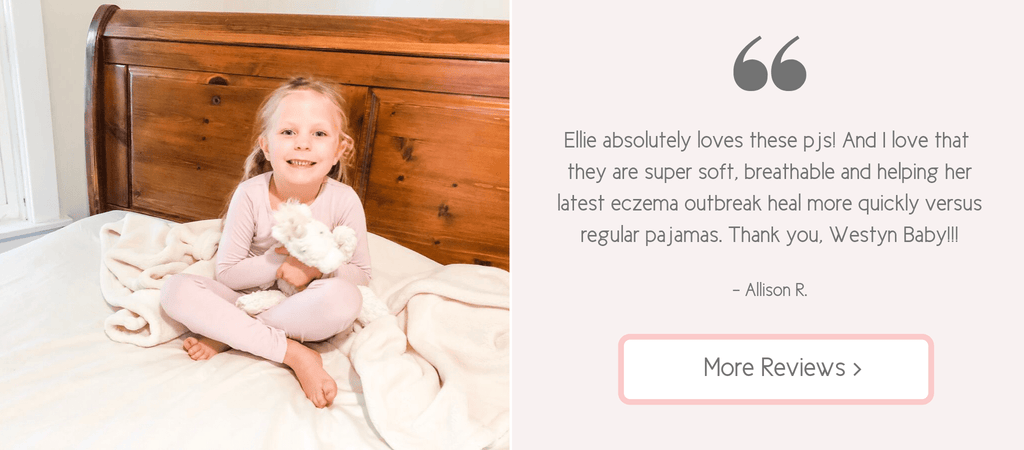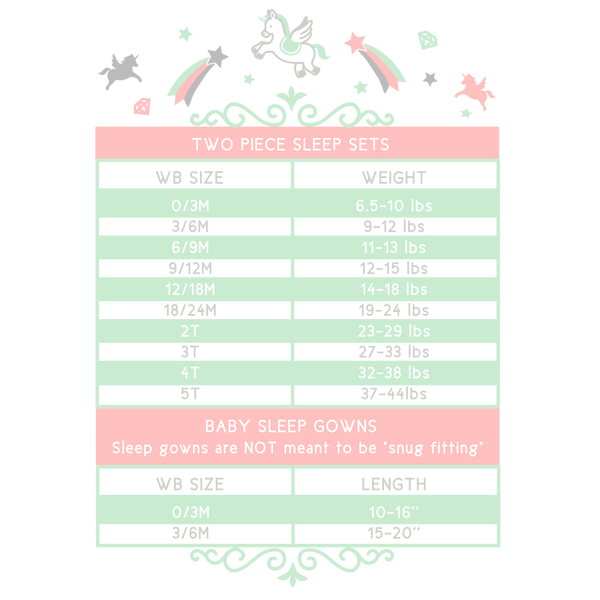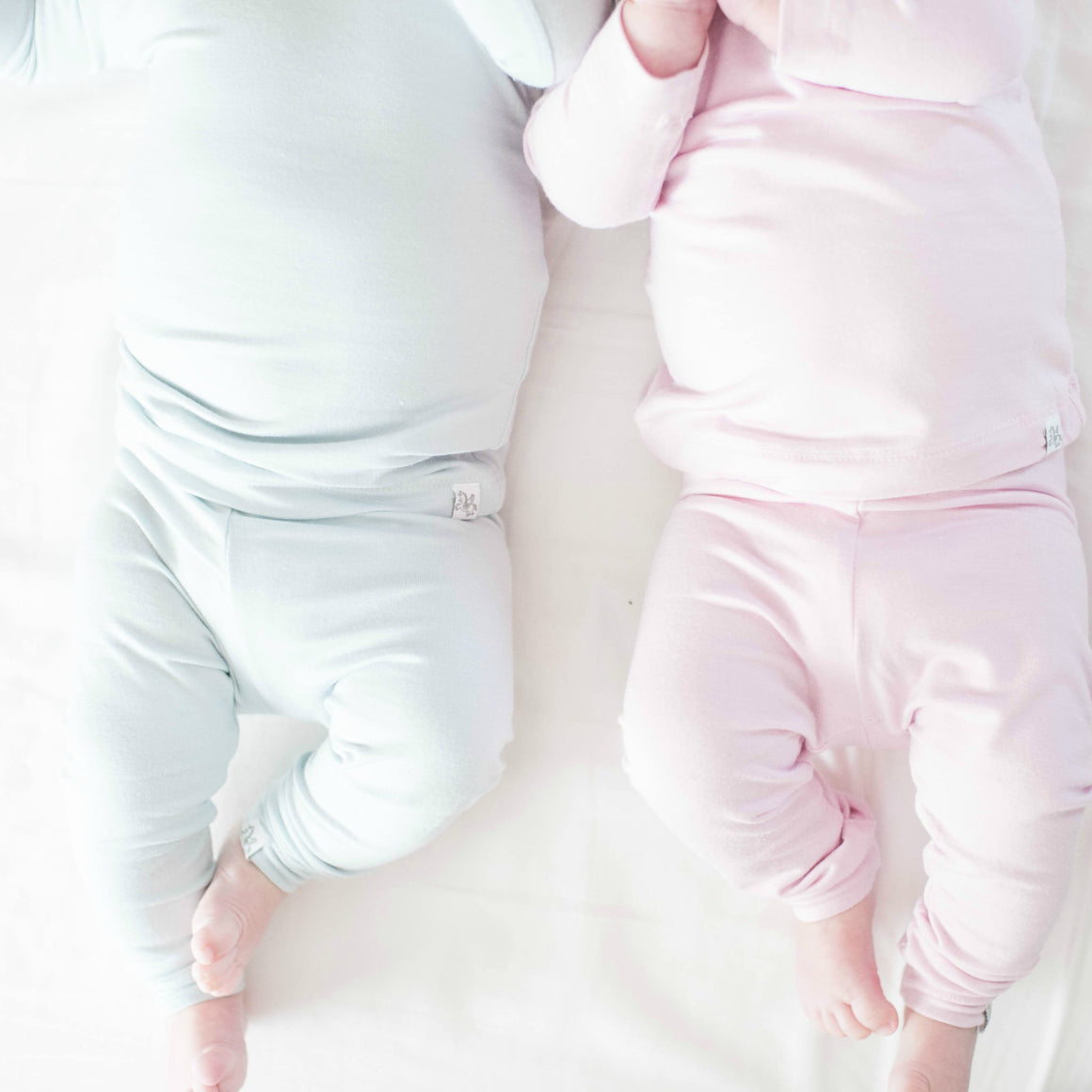Baby With Eczema Not Sleeping? 10 Tips For A More Peaceful Night’s Rest
Is your baby with eczema not sleeping? If you’re a parent to a child with eczema, you’re quite familiar with the nightly battle of the itch which can leave your little one—and you—exhausted and cranky. Irritated, itchy skin can cause lots of discomfort, especially during those precious nighttime hours when your baby should be resting peacefully. In fact, it seems to get worse at night, doesn’t it?!
We all know that when baby sleeps less, so do the parents. In fact, a new study funded by the National Eczema Association has revealed that mothers of children with moderate to severe atopic dermatitis (eczema) are more likely to experience sleep loss and daytime fatigue than mothers of children without the disease. Eczema moms everywhere gave a resounding “duh”.
For kiddos with baby eczema, sleep problems are common and if you’ve noticed that your child’s eczema seems to get worse at night, you’re not alone. People without eczema tend to notice irritating, dry skin at night so it’s no surprise that nighttime can wreak havoc on eczema-prone skin. But don’t worry—eczema-related irritation is a very common sleep disturbance and there are a TON of things you can do to make your little one more comfortable once nighttime hits.
Article Contents:
- Baby With Eczema Not Sleeping? You’re Not Alone!
- Why Does Eczema Get Worse at Night?
- 10 Tips: How to Stop Eczema Itching At Night
- The Best Eczema Pajamas for Kids
- Summary
Baby With Eczema Not Sleeping? You’re Not Alone!
Between 10 and 20% of all children have eczema and up to 83% of children who are experiencing an eczema flare up have difficulties falling and staying asleep. In fact, a new study suggests that kids with eczema—even mild eczema—may be more likely to have poor quality sleep than children who don’t have this common skin disorder. Although eczema didn’t appear to impact the total amount of sleep kids got, children with mild eczema flare ups were 40% more likely to have sleep disturbances—nighttime awakenings, early morning awakenings, difficulty falling asleep, and nightmares—and those with severe eczema flare ups had 85% higher odds. Pruritus—itchy skin that makes you want to scratch—is often worse at night, so it’s no surprise that it can have major effects on a child’s sleep quality.

Why Does Eczema Get Worse At Night?
Is your baby scratching eczema at night? You might be surprised, but night itching is not restricted to just children and adults with dermatitis. Because certain key functions of the skin may be altered during sleep—including thermoregulation, maintenance of fluid balance, and barrier function—night itching is a common occurrence even among people with perfectly normal skin. Although the exact cause is unknown, there are several factors that may contribute to an increase in itchy skin once nighttime hits.

Body Temperature & Blood Flow. Body temperature and the blood flow to skin both increase in the evening leading to a rise in the warmth of the skin. A rise in skin temperature can make you feel more itchy. Fun fact: Sweat is one of the most common eczema triggers!
Skin Barrier Function. Trans-epidermal water loss (TEWL)—a measure of skin barrier integrity—is increased at night. Impairment of barrier function may contribute to irritation by facilitating the entry of substances that cause itching. In patients with dermatitis, increased TEWL has been associated with increased itch intensity.
Cytokines & Corticosteroids. At night, the body releases more cytokines which increase inflammation. Meanwhile, Corticosteroid—hormones which help combat inflammation—levels are at their lowest, which leads to a decreased anti-inflammatory response .
Fewer Distractions & Involuntary Itching. Did you know that adults wake up between two and six times every night? Adult sleep cycles range from 90 minutes to two hours and, but in children these sleep cycles are shorter—about one hour. At the end of every sleep cycle, there is a short arousal time where the brain wakes up briefly and then returns to sleep. During these brief arousals, the itch sensation may kick in and the child is too sleepy to remember to hold back. When itchiness hits during the day, there are distractions that can help your little one ignore the annoying sensation, but at night there are fewer distractions which can make the itch feel even more intense. "The trouble with scratching is that it can actually make the condition worse," says Lawrence Eichenfield, MD, chief of pediatric dermatology at Rady Children's Hospital in San Diego. "And, it can cause cuts in the skin that can become infected. So it's important for parents to learn ways to help their child stop scratching."
10 Tips: How to Stop Eczema Itching at Night
Now that we have an idea about what might be causing those irritating nighttime itches, we can combat them better. If you have a baby with eczema not sleeping, here are ten tips that should help your little one get a more peaceful night’s rest.
1. Keep skin temperature regulated. Sweat is one of the most common eczema triggers, so keeping your little one cool at night is perhaps the most important thing you can do. Maintain a cool temperature in the nursery or bedroom. Always opt for air-permeable sleepwear that will allow the skin to breathe and absorb excess sweat. Westyn Baby sleepwear is made of modal, which does exactly that!
2. Avoid harsh fabrics. In most cases, lightweight, breathable fabrics are going to be better than warmer, heavier fabrics. Avoid things like Polyester (be careful, Polyester is used often for children’s sleepwear!) and wool, which wreak havoc on sensitive skin. Instead, opt for super soft lightweight fabrics like the modal in Westyn Baby sleepwear.
3. Bathe baby at night. Bathtime is always fun for babies, but it’s also very important when battling eczema! A daily bath can actually help your baby’s skin retain moisture and prevent infections, but it must be done correctly. Keep bathtime brief (5-15 minutes), use lukewarm water, and moisturize within 3 minutes of bathtime (more on moisturizers next). For more, here’s a complete guide to Bathing Babies with Eczema.
4. Moisturize, Moisturize, Moisturize! Moisturizing your baby’s skin immediately after bath time is very important, but using the right type of moisturizer is equally as important. There are tons of moisturizers specially formulated for eczema which makes choosing one a bit overwhelming. In short, moisturizers with a high oil content are usually best for treating eczema. Ointments—which contain the most oil— are the number one choice for eczema-prone skin. Although they usually feel “greasy”, they contain more oil than creams and lotions, so they’re better at keeping moisture in and irritants out. If your little one can’t stand the greasiness, your second best option is a cream. Lotion is not recommended for eczema-prone skin since it has very little oil content and it tends to cause irritated skin to burn. Not to mention, lotions are made of mostly water so they evaporate quickly. Properly moisturizing is one of the best ways to soothe baby eczema.

5. Use cleanser, not soap. When cleaning your baby’s skin, opt for a cleanser, NOT soap. Soaps usually contain sodium lauryl sulfate—a known eczema irritant—to create the foaming action (for that same reason, you should stay away from bubbles). Soap also increases the skin’s pH to an undesirable level, which can severely worsen eczema symptoms.
6. Tend to fingernails. It’s hard not to itch when the irritation picks up at night! Keep your baby’s fingernails cut short and opt for no-scratch mittens. Making it more difficult to scratch can help control eczema itching at night and prevent it from getting worse. Our baby sleep gown has mittens built right in! Bonus: our gown makes middle of the night diaper changes quick and easy!
7. Stick to a routine. A consistent routine is key to a successful bedtime transition. Develop a good nightly routine and stick to it as best you can—bathtime, brush teeth, put on PJs, read a book, meditate (🤔 more on that in a sec). Try to be consistent with bedtime and wake up time as well. Keeping these things the same will help your little one unwind and de-stress from the activities of the day.
8. Try Meditation. As your baby gets older, stress and the anticipation of eczema itch can be enough to prevent her from falling into a peaceful sleep. And as I mentioned, there are few distractions to keep her mind off the irritating itch! Just helping your child relax can lead to a better, more fulfilling sleep and there are tons of videos and guided scripts that you can employ as part of your nightly routine. For some ideas, check out Kids Sleep Meditation.
9. Pinpoint triggers. If you notice a particularly bad night of itchiness, consider trying to find eczema triggers (this is a good idea all the time, not just at night). Perhaps your child tried a new food at dinnertime. Maybe you strolled through the park and the pollen level was high. If you can pinpoint the triggers, you’ll know to avoid them, especially before bed.
10. Consider wet wrap therapy. During really difficult flares, consider using wet wrap therapy. Using moist dressings can help the skin stay hydrated at night and prevent ointment or medication from rubbing off. Apply the dressings directly to the skin and put tight fitting pajamas over top to hold them in place.

The Best Eczema Pajamas for Kids
If your baby with eczema is not sleeping, one of the most important things to consider is what type of products and clothing you’re using on your little one’s skin. We’re not shy about sharing that we think our sleepwear is the best for eczema and sensitive skin. Here’s why:
Exceptional Softness
Each piece of WB sleepwear is made of modal, a fabric that naturally presents with a smooth, silky feel. Modal glides over the skin without rubbing or being abrasive. When it comes to clothing for eczema-prone skin, ultra soft, silky-smooth fabric is a must. Our sleepwear is perfect for eczema sufferers because of its exceptional softness and creamy, silk-like qualities.
Breathability
Remember that body temperature and the blood flow to skin both increase at night. Warmer skin can increase itch and sweat is one of the most common triggers of eczema itch. Because our fabric is made from the pulp of the Beech Tree, it’s naturally breathable and cool to the touch. Your baby’s eczema-prone skin should be dressed in lightweight, breathable fabrics—like modal— which regulates the skin’s temperature and allows it to breathe.
Absorbency
If sweat does occur, it’s important that the fabric is moisture absorbing. Moisture absorbing materials are designed to quickly absorb and capture sweat. Cotton is one of the most common absorbent fabrics used today so it’s commonly recommended for eczema sufferers, but our modal fabric is actually 50% more absorbent than cotton!
Tag & Embellishment Free
We all know how uncomfortable clothing tags can be! To avoid this itchy problem, our garments have the labelling information printed directly onto the fabric. We use screen printed designs which are not irritating like stitched or appliqué embellishments, and all of our sleepwear is snap and button free since these closures often contain nickel and other components that can irritate sensitive skin.
Minimal Seams
No uncomfortable seams here! Our pieces have minimal seams sewn with ultra soft thread; a must for delicate, eczema-prone skin.
Flame Retardant Free
Our sleepwear is NEVER treated with dangerous, toxic flame retardant chemicals. Although flame retardants have been used in children’s sleepwear for years, research is now showing that they may be detrimental to kids. Not to mention, they’ve been linked to skin irritations, so we avoid using them altogether.
Summary
Is your baby with eczema not sleeping? If your little one is suffering through frustrating bouts of itchiness at night, you’re not alone—the skin feels extra dry at night even for non-eczema sufferers and there are several physiological changes that may be the culprits. To alleviate the nighttime “itchies”, bathe baby before bed and apply moisturizer—preferable an ointment or cream—immediately after. Baby itching at night leads to scratching, which can make things even worse so keep the skin cool and keep fingernails short. Most importantly, opt for ultra soft, air-permeable sleepwear that will allow the skin to breathe. For little ones with eczema, baby sleep can be elusive, but there are lots of things you can do to help your baby one get a more peaceful night’s rest.
Toddler with eczema not sleeping? We’ve got ya covered! Our sizes go up to 5T, so if you’re dealing with toddler itchy skin at night, our two piece sleep sets are the perfect way to keep them cool and comfy all night long. Good luck!


Sources:
https://nationaleczema.org/helping-your-child-with-eczema-sleep/
https://www.aad.org/public/diseases/eczema/eczema-resource-center/what-to-watch-for/sleep-loss
https://www.medicalnewstoday.com/articles/323505.php
https://www.mustelausa.com/baby-eczema-flare-ups-and-sleep
https://www.westynbaby.com/blogs/westyn-baby/guide-to-bathing-babies-with-eczema
https://www.webmd.com/skin-problems-and-treatments/eczema/features/child-scratching#1
https://nationaleczema.org/eczema-leads-to-problems-sleeping/
https://nationaleczema.org/maternal-sleep-disturbances/
https://jamanetwork.com/journals/jamapediatrics/fullarticle/2725861
https://www.healthline.com/health/itchy-skin-at-night#natural-causes
https://www.ncbi.nlm.nih.gov/pmc/articles/PMC4813276/
Leave a comment
Comments will be approved before showing up.












About The Author
Tara Saltzburg founded Westyn Baby when her son was an infant battling severe eczema. She was always on the lookout for products that would minimize the irritation and ease his discomfort, but safe, non-irritating pajamas proved difficult to find. Tara started Westyn Baby in 2016 with a mission to create better, safer sleepwear for kids - sleepwear that's exceptionally soft, flame-retardant free, sensitivity-friendly, and durable. Read more about WB sleepwear.
Tara was born and raised at the NJ shore and attended Penn State University, where she played soccer and discovered her love of mountain life. She is a mom of one boy and hopes to eventually have enough kids to form some sort of athletic team. She and her family currently reside in Central Pennsylvania and spend the summers in Stone Harbor, NJ.